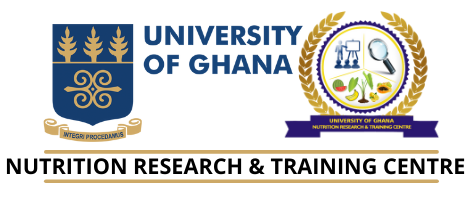Dr. Alex Boadi Dankyi

Dr. Alex Boadi Dankyi is a Research Fellow at the University of Cape Coast (UCC) in Ghana. He holds a Ph.D. in Management Science and Engineering from Jiangsu University, China and a Master in Human Resource Management from the University of Cape Coast (UCC). He is interested and has extensively researched Developmental Economics, specifically in Human Capital Development, Human Resource Management, Quality of Health Services, Energy Economics, and Organizational Innovation. He notes that community development remains a crucial component of the national development agenda and a sharpened tool for developing countries to reduce poverty gaps. Also, health and education are the most widely used proxy determinants of human capital development and, by extension, community development. As an early career researcher with a focus on developmental economics, specifically human capital development, energy economics and, by extension, community development, the QES-WA will allow him to collaborate with experts in health and education to improve his competencies in human capital development and community development.
Michael Akenteng Wiafe

Michael Akenteng Wiafe is an assistant lecturer at the Department of Nutritional Science, University for Development Studies (UDS), Tamale-Ghana. Michael holds a BSc in Community Nutrition (UDS) and MPhil in Human Nutrition and Dietetics (Kwame Nkrumah University of Science and Technology, KNUST, Kumasi-Ghana). He is a final year PhD Candidate at KNUST investigating the effect of nutrition education and counselling on adolescents’ dietary iron intake and iron status in Ghana. His research focus includes micronutrients, malnutrition, dietary patterns, dietary management and prevention of chronic diseases, therapeutic food development, nutrition in pregnancy, childhood, and adulthood. As an innovative young researcher, the QES will allow him to collaborate and network with astute and top-notch researchers in nutrition, agriculture, and other disciplines. Michael believes the best way to reverse the consequences of nutritional deficiencies and reduce poverty is to eat what we grow and grow what we eat locally. Value addition to agricultural produce is a prerequisite for entrepreneurship and community development. As a QES scholar, Michael will be collaborating with Densu Associates as his Research Placement Partner (RPP). He will review institutions and organisations focused on promoting education, skills/training and/or employment with particular attention to gender, disability and youth in the agriculture sector of Ghana. Michael will help produce a research report detailing opportunities and barriers that women, especially young women aged 15 to 35 years of diverse backgrounds (young married people, widowed, people with disabilities, displaced youth, etc) face in Agriculture in Ghana.
Benedicta Asare
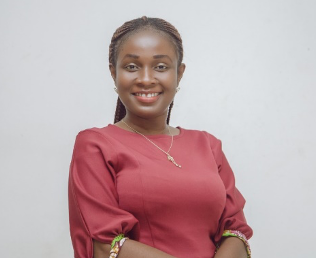
Benedicta Asare is currently a Ph.D. Candidate at the Department of Human Nutrition and Dietetics, Kwame Nkrumah University of Science and Technology (KNUST) under the supervision of Prof. Reginald Adjetey Annan and Dr. Erick Herman Lutterodt. Her doctoral research aims to explore and understand the drivers of post-harvest losses of fruits and vegetables along the value chain and its linkage to the nutritional status of women and children. Her results are aimed to inform the development of tailored interventions to reduce food waste at the household level by educating and training mothers on preservation methods for fruits and vegetables to reduce anaemia among women and children. Benedicta completed her Bachelor’s in Dietetics and Master’s in Public Health at the University of Ghana (UG). She also has a certificate in Policy Planning and Development and Leadership and Management in Health from the University of Washington. Over the years, she has built her experience working within urban and rural communities on issues related to the health and nutrition of women and children. Benedicta’s career goal is to work with local and international organisations as an academic researcher to provide research-based interventions and policy formulation modalities in nutrition and public health to vulnerable groups in society, most especially women. Through this training, she hopes to acquire leadership and capacity building skills in women’s health, nutrition, and agriculture as well as identify conditions and best practices that will help foster successful partnerships between researchers, institutions, and policymakers. She also hopes to use this opportunity to connect and build networks with people working in the field of gender and women’s empowerment both locally and internationally for her future work. As a QEScholar, She will be collaborating with her Research Placement Partner (RPP), World Vision, Ghana, a Christian relief, development and advocacy organization dedicated to working with children, families and communities especially vulnerable people to overcome poverty and injustice. Her research objective will answer the question of “Gender inclusion strategies in mainstreaming nutrition into agriculture investments”. She hopes to use the opportunity to build networks with people working in the field of nutrition, child and maternal health both locally and internationally for future collaborations.
Tapsoba Viviane Aurélie
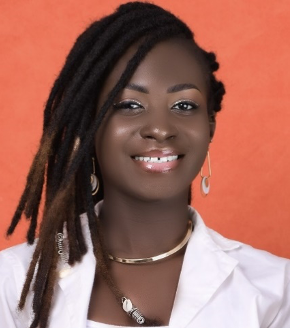
Tapsoba Viviane Aurélie is a nutritionist in her second year of a doctorate at the Joseph Ki Zerbo University (UJKZ) in Ouagadougou, Burkina Faso, under the supervision of Dr. Ella Compaoré. Aurélie’s research thesis focuses on analysing public policies and government actions for a healthy food environment in Burkina Faso. This research project will provide indicators and information to guide public nutrition policies in Burkina Faso. Aurélie holds a bachelor’s degree in agri-food obtained in Burkina Faso, a master’s degree in nutrition and food security obtained at the Felix Houphouet Boigny University in Abidjan. While conducting her research thesis on nutrition policies, she began her career as a nutritionist at the Gaoua Regional Hospital Center, Burkina Faso. She enjoys helping patients have better nutrition and food habits, which is part of her entrepreneurial project for her community. The QES program will hone her leadership, research, and interpersonal skills, which will be extremely important in her career as a research nutritionist and enable her to make critical decisions to improve nutrition and nutrition policies.
Dr. Coulibaly Wahauwouélé Hermann
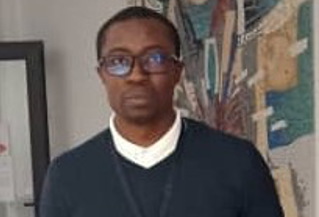
Dr. Coulibaly Wahauwouélé Hermann holds a Ph.D. in Biotechnology and Food Microbiology from the University Nangui Abrogoua (UNA), Abidjan, Ivory Coast. Since 2017, He has been a researcher at the Biotechnology and Food Microbiology laboratory in the Department of Food Science and Technology, University Nangui Abrogoua. Hermann’s doctoral research examined how to improve the quality of local beer produced from sorghum. Currently, his research focuses on probiotics and the valorization of agricultural by-products. He is a recipient of the post-doctoral research award of Agence Universitaire de la Francophonie (AUF) and the Romanian government; Eugen Ionescu in 2021 for post-doctoral research at the University of Agronomic Science and Medicine Veterinary of Bucarest, Romania. He holds certificates in sustainable development and project management. As a QEScholar, Hermann hopes to enhance his capacity in community-based research and develop his network with other researchers. As a QEScholar, Hermann will be collaborating with his Research Placement Partner (RPP), World Vision, a global non-profit organisation whose mission is to reduce gender inequality through the inclusion of gender in all areas of activity and to fight malnutrition in all its forms to contribute to poverty reduction. He will develop his skills in quantitative and qualitative survey data analysis and also have the tools to empower women and gender in the Ghanaian context. He hopes to use the opportunity to establish links and networks with people working in the field of gender, women’s empowerment and nutrition both locally and internationally, for his future work.
Dr. Ella Compaore

Dr. Ella Compaore has a PhD. in Human Nutrition and is a lecturer at Joseph KI-ZERBO University (Ouagadougou, Burkina Faso). Dr. Compaore has been the Scaling Up Nutrition (SUN) focal person for Burkina Faso since 2017. She has also performed important roles since 2017, including the Strategic lead on the National Information Platform for Nutrition (PIN) and the West African Food Coordinator. She is also the focal person of the thematic and research program on food security and nutrition and the general secretary of the African Federation of nutrition societies (FANUS). Dr. Compaore’s expertise spans maternal, new-born, infant, child and adolescent nutrition, nutrition financing, multisectoral approaches, policies, strategies, and evaluation in the field of nutrition, and strategy building for behaviour change communication through innovative approaches.
Prof. Amos Laar

Prof. Amos Laar has academic training in Nutrition, Public Health, and Bioethics. In his independent scholarship, he draws on theoretical, conceptual, and methodological perspectives from the social sciences, bioethics, and public health to understand how physical environment, social environment, as well as structural forces affect health. Currently, his research focuses on two distinct, yet related areas of public health – bioethics (ethics & public health; health & human rights, food ethics, & nutrition rights); public health nutrition (food literacy, nutrition-related non-communicable diseases, and the nexus between food environment and health). He spent most part of the past decade exploring the socio-cultural, socio-ethical, and medico-ethical dimensions of HIV. He has led/co-led such projects as the HIV/AIDS Interactive Training, Education and Development Center Project (which developed interventions to increase uptake of HIV testing, and reproductive health literacy of students and staff of the University of Ghana); the Non-prescription Medication Use Project (which assessed multiple non-prescription medications use among Ghanaian HIV-positive persons on antiretroviral therapy). He was one of two experts/consultants who supported the development of Ghana’s ~78 million US Dollars Global Fund Grant for HIV/TB for the period 2018-2020. In 2017, he supported UNAIDS to develop Ghana’s Fast-Track HIV Prevention Roadmap. He was recently involved in the implementation of the UK-AID/Bill and Melinda Gates Foundation-funded “Dietary Transitions in Ghanaian Cities”, as well as the MRC-funded “Dietary Transitions in African Cities Project” (both projects aimed to identify how social, and physical environments drive consumption of energy dense nutrient-poor foods and beverages). He is the PI of the IDRC-funded MEALS4NCDs Project which is “measuring the healthiness of Ghanaian children’s food environments to prevent obesity and non-communicable diseases”. Prof. Laar is a Co-PI and Ghana Lead on a 5-year NIH-funded project which will establish a masters programme in Bioethics at the University of Ghana (the first of such in Ghana). Prof. Laar’s international engagements in public health nutrition include his participation in the 66th Session of the UN-General Assembly Meeting in New York, 2011; in the UN Economic Commission for Africa Expert Group Meeting in Addis, Ethiopia, 2017; in the FAO’s Future of Food Symposium, Rome, 2019, and several other international meetings. He was recently recognized in the Lancet, for his efforts at combating nutrition-related NCDs in Ghana.https://www.thelancet.com/journals/landia/article/PIIS2213-8587(19)30216-5/fulltext. His scholarly works include 68 peer-reviewed publications (one book, five book chapters, 62 Journal articles).
Dr. Nii Addy

Dr. Nii Addy is Associate Director (Africa Outreach)/Senior Outreach Advisor in the office of the Deputy Provost, Student Life and Learning (DPSLL) at McGill University. In this role, he develops, manages, and assesses cross-sector partnerships, training and applied research supporting McGill Mastercard Foundation (MCF) Scholars’ transitions from academic studies to entrepreneurship and employment for impact in Africa. Dr. Addy also teaches at the Max Bell School of Public Policy and in the African Studies Program. He is an Associate Member of the School of Continuing Studies (SCS) and the Faculty of Agricultural and Environmental Sciences (FAES). He has previously been Assistant Professor (Research) at the McGill Center for the Convergence of Health and Economics (MCCHE) in the Desautels Faculty of Management, and the Institute for the Study of International Development (ISID). Dr. Addy’s interdisciplinary work focuses on institutional change in multi-stakeholder partnerships across societal sectors (businesses, public agencies, and civil society organizations) and industrial sectors (education, agriculture, nutrition, health, etc.). He combines qualitative and quantitative approaches, with the goal of informing how diverse stakeholders can work together effectively. He applies research in developing knowledge sharing tools, and in training leaders from various sectors as they engage in partnership processes for sustainable development, in Anglophone and Francophone contexts. He has been a researcher and consultant on projects for a number of organizations, including the UK Department for International Development (DFID), the World Bank, the Hewlett Foundation, Mathematica Policy Research, Inc., and ICF International. He obtained his Ph.D. from Stanford University’s Graduate School of Education, where he specialized in Organization Studies and International Comparative Education. He has a BA in Economics from Swarthmore College, and a Master in Public Affairs (MPA) from Princeton University.
Dr. Agartha Ohemeng
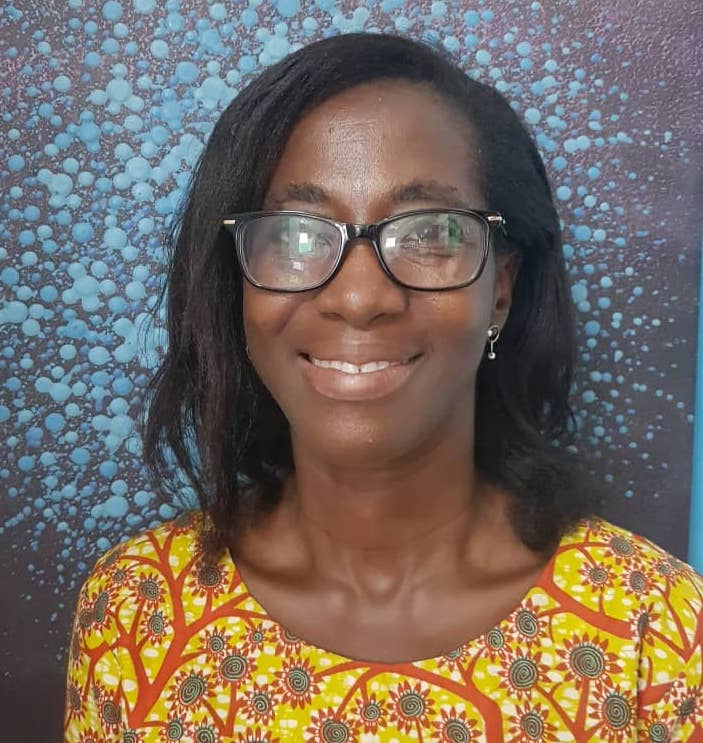
Dr. Agartha Ohemeng is a Senior Lecturer of Nutrition at the Department of Nutrition and Food Science, University of Ghana, Legon. Her research interests are MaternaI and Young Child Nutrition, School Child Nutrition, and Diet and Disease. Dr. Ohemeng has about fourteen years of experience in community-based nutrition research activities and has conducted research and published on using integrated education intervention and moringa fortificant to address complementary feeding, household food insecurity and child health, nutrition among school aged children, and nutrition among children with sickle cell disease. She is currently the Programmes Coordinator of the University of Ghana Nutrition Research and Training Centre in Asesewa and the Director of the Dietetic Internship in Rural Community Nutrition Program.
Prof. Richmond Aryeetey

Prof. Richmond Aryeetey is an Associate Professor at the University of Ghana. Richmond is leading the Ghana Stories of Change in Nutrition work for Transform Nutrition West Africa and has worked in Ghana as a researcher in maternal and child health for the last 13 years. His expertise spans Primary research skills, formative research, and Monitoring and Evaluation, Training and Facilitation. Richmond’s current research projects include studies on food environment of urban-dwelling adolescents, and exploring policy options for scaling up optimal feeding among infants and young children in Ghana.
